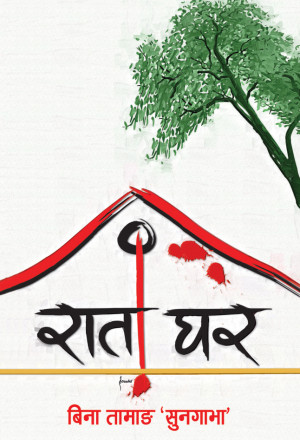Product Description
Ever since Orpheus plucked at his lyre and brought trees and rocks into wild dance, poets have sung of the meanings of memory and place. Bhisma Upreti’s new collection, Just as I am, is the culmination of six previous collections, and this book is populated with flowers and ravenous dreams, curfews and candles, civilizations and their mules and paradoxes, landslides, love letters, wrinkled bodies and red sunsets, gurgling brooks, birds, bells, and hope … and, Upreti assures us, “I am pondering them all, one by one.” Like so many poets before him, here is a writer engaged in the attempt to acutely apprehend eternal forms within human dramas, and to then sing those shapes authentically. Just as the German Romantic poet Friedrich Hölderlin believed that a lyric was “lightning wrapped in song”, the texts contained in Just as I am are epiphany-filled and electric, and arrive as sudden and illuminating moments of truthfulness.
Born in Jhapa, Nepal, as well as poetry Upreti has published eight books of non-fiction essays; his works have been translated into English, Korean, Japanese, German, Serbian, Slovenian and Hindi. The translations in Just as I am are odes, elegies, mantras, aphorisms, and chants which echo resoundingly out from the poet’s sublime Himalayan vistas. “I laugh”, he tells us, “sleep and wake up in poetry”, and we might imagine these texts as peals rolling across those phenomenal mountains to wake us all. Indeed, Upreti’s apprehending seems to roll ever onward, always into questions (and never conclusiveness)
Really to see the hill,
how can it be enough to observe
only the rocks, twigs, snowfall,
landslide and glacier?
he asks, as if the images in these texts are composed of the sum total of composite parts and then something beyond. Upreti desires to see reality; in a place where life can involve suffering which is “harder than the rocks”, this is a poet who traces the contours of a people pressed into shape by the terrains around (and indeed within) them. When salutarily decrying “everything is just as I am”, we are to understand that this is the cri de coeur of engagement, belonging, and stark realization; Upreti’s everythingness is an echoing that repeats and confirms a profound connection to place and people. These texts, then, are at heart ethical and engaged, and for the most part written in the mode of a love poem.
Indeed, Upreti’s work expresses truths from those mountains which lack a human language, and he keenly ventures that elemental force which compels him to sing
A man from far away mountains
coming to the sea
would take in the sea with both eyes,
then closing them, would think alone,
that there are many things in the sea,
very many,
which the mountains lack!
This is a poet who speaks an unadorned phraseology of wonder: can there be anything more foreign to these mountains than an ocean? Upreti’s preternatural murmuring issues forth from that place where “today I have/ everything I need for living” and, reading these poems, we too must close our eyes and think, alone, while the anthropomorphized mountains ripple through Upreti’s humanizing texts. “Boy, which hill do you belong to?” an elderly man asks in one of the poems, but in fact he is asking us each; these are poems of unfolding and shape-taking, naturalistic and real and if, as Wallace Stevens avows, the poem “is a meteor” then these celebratory texts graze the outer circumference of our perception. Like either a meteor or lightning, there are truths here which can momentarily light up the darkness of our accustomed modes of perceiving.
In the poem that gives this book its name, Upreti’s connection to the sensate world is momentarily lost
There is no light in the sky
the wind is howling.
Oh! there is no view of sun,
not a fragment of blue sky
and, tellingly, it is only through checking and ensuring the reality of the self that all things are then confirmed within their context
I touch myself and realize –
at this moment
everything is as I am
and it is this passage which locates the organizing principle (indeed, the poetics) within Just as I Am: Upreti’s are epiphanies, extra-logical and made into songs of wonder and awe at the interconnectivity of all things. This worldview causes Upreti to sing his constructivist, authentic songs so as to rebuild our connections with each other and with our places. This poet, who has a Masters degree in Economics from the University of Southampton (UK), may well be Nepal’s equivalent to Wallace Stevens: in the final section of Just as I am, the previously uncollected poems stage their own search for the inexplicable, and culminate in meditations and mediations on ageing, politics, love, death, and hope. Upreti wishes that
On the bloodless branches
of my life may once again sprout fresh leaves
before casting his gaze outward and across our current, globalized milieu. The final line of this collection of potently-sung lyrics sums up his ultimate dream and destination
Let me be a bird, please.
These poems, which make their own call-and-response to the world, cause one to wonder whether Upreti is not just fluent in human tropes and the non-language of mountains. These deft texts navigate us, chiming resonant and complex, across uncanny and universal scenes.
Dan Disney
Sogang University, Seoul, Korea




